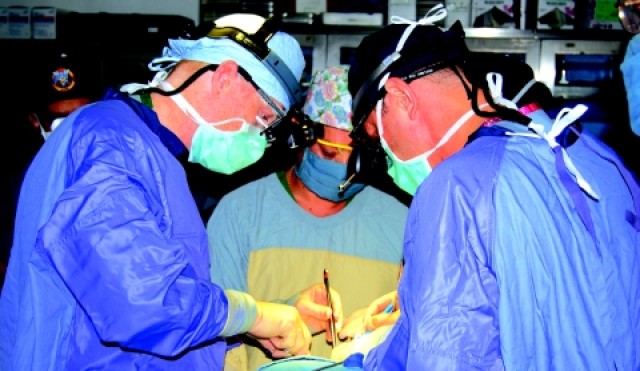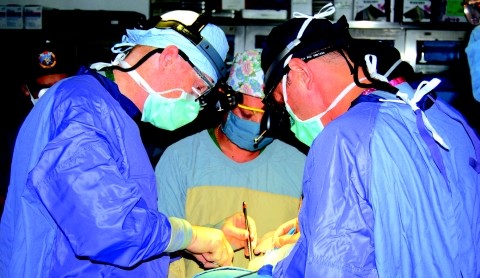Tripler Army Medical Center sent specialized surgical teams to three Southeast Asia countries this year as part of a humanitarian outreach program and the Pacific Command's mission to strengthen relationships and set conditions for regional security and prosperity.
In many parts of Southeast Asia, health-care access and capabilities are limited or expensive, preventing impoverished families from getting the health care they need.
The mission teams were named Sight, Sound, and Smiles because they were designed to provide surgical treatment for vision loss, hearing loss, and craniofacial disorders (cleft lip and palate). The first Sight, Sound, Smiles mission took place in Bangladesh in 2007.
"The Sight, Sound, and Smile model allowed a much broader range of capabilities than we anticipated," said Lt. Col. Joseph Sniezek, chief of Tripler's otolaryngology service. "We knew we could treat vision loss from cataracts, hearing loss from chronic infections, cleft lips and palate, but the reality was we were able to treat most disorders of the head and neck."
Tripler's teams this year visited Kuantan, Malaysia; Bogra, Bangladesh; and Phnom Penh, Cambodia.
All three missions had similar goals - to provide free surgical care to impoverished civilians, provide training and education, and build health-care capacity.
The Sight, Sound, Smiles teams collaborated with host-nation military and civilian medical personnel. Two missions were carried out at military hospitals and one at a charity hospital.
The teams evaluated more than 350 patients and performed 150 surgical procedures.
Teams included otolaryngology head and neck surgeons, cleft lip and palate surgeons, ophthalmologists, surgical technicians and nurses. Some teams had additional personnel depending on the host country's need and capacity-building focus. The missions each included one week for travel, and one week of clinical operations.
"Most of the patients treated by the team would not have been able to get the care they needed because of lack of available expertise, cost or other limitations in the health-care systems," said Lt. Col. Mitchell Ramsey, the mission team co-leader for Cambodia.
Every mission included otolaryngology residents who were largely responsible for much of the organization, planning and execution. For the residents these missions provide clinical experience with exposure to very far advanced disease. There is also a relevant military training aspect found in planning, coordination and execution of missions in austere conditions.
Tripler is home to one of eight DOD otolaryngology training programs. These eight programs represent about 10 percent of the otolaryngology head and neck surgeons trained in the U.S.
"Ultimately, the goal is to achieve sustainability and increase capacity to the point where the host countries no longer need our assistance and patients can receive the care they need," Ramsey reported. "Regardless of how you look at the outcomes: return on investment, training experience, capacity building, good will, or most importantly, the life-altering impact on the patients, these missions were an incredible success."


Social Sharing